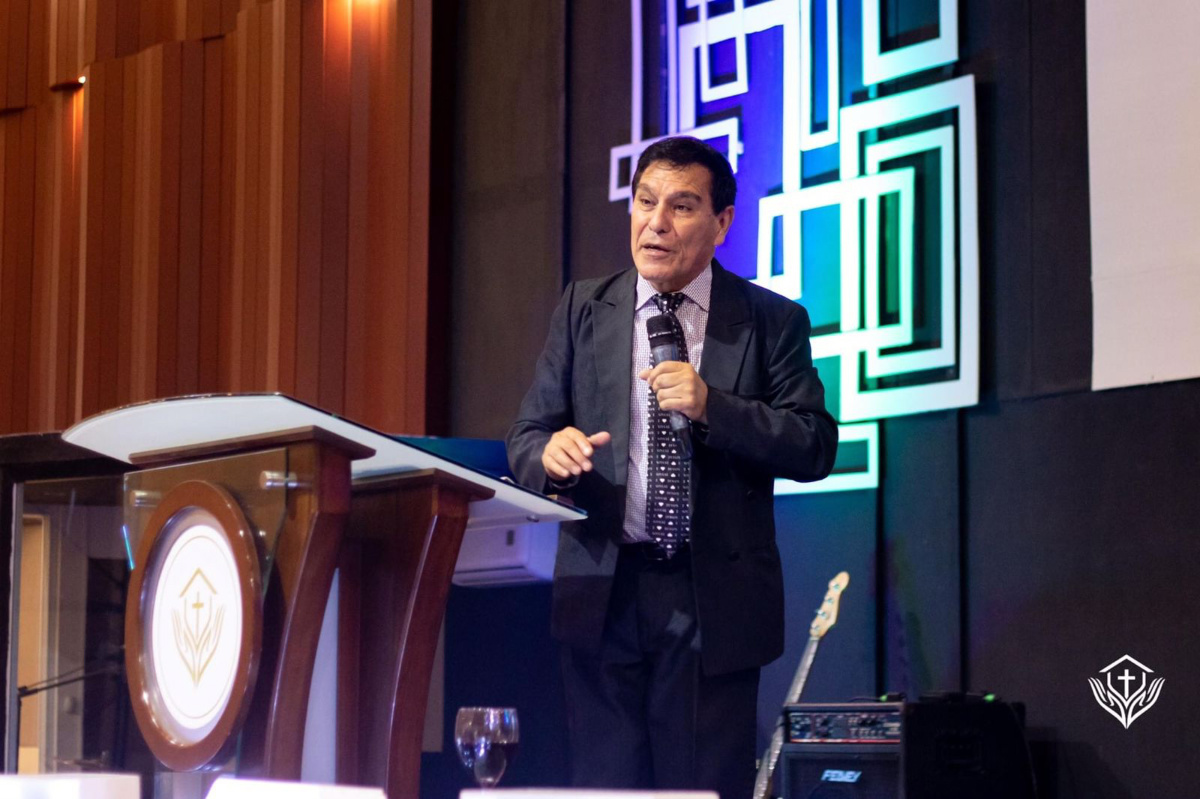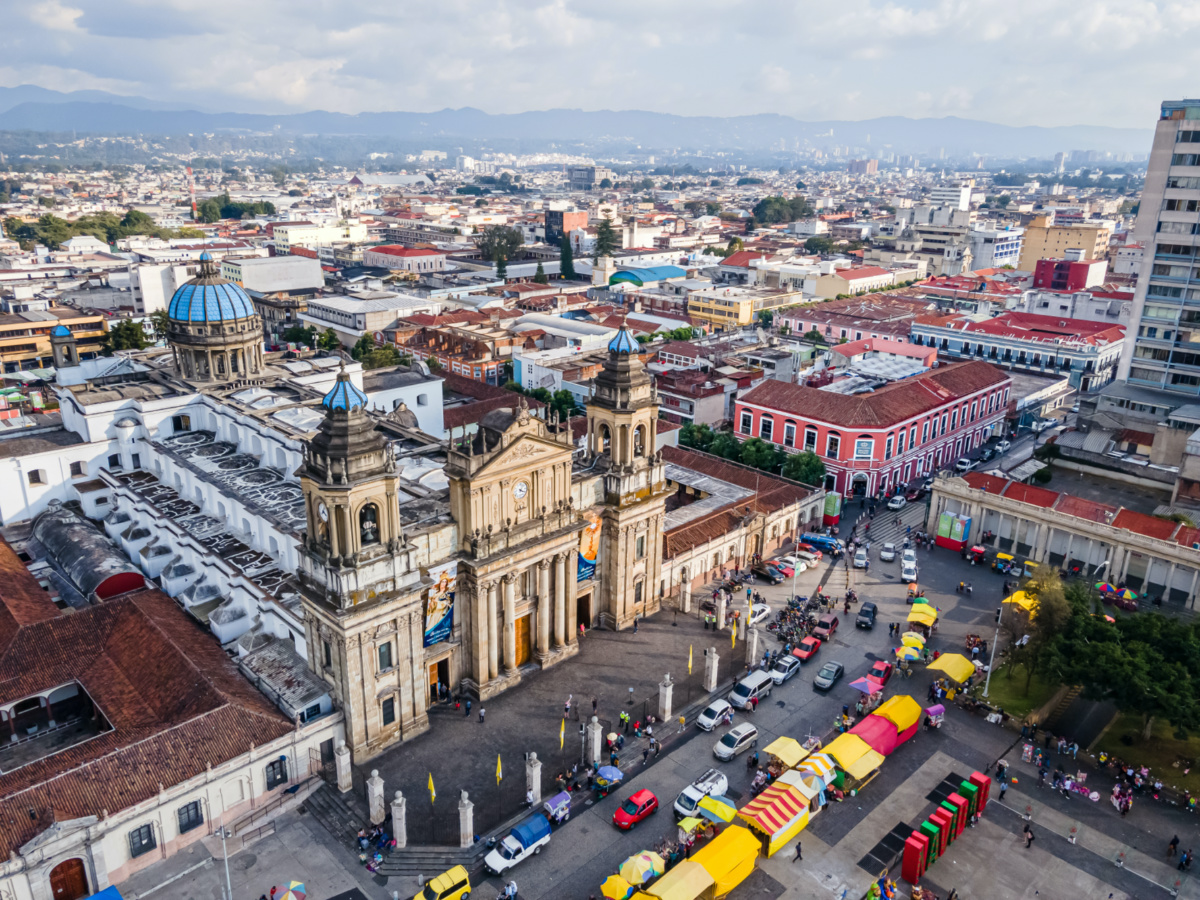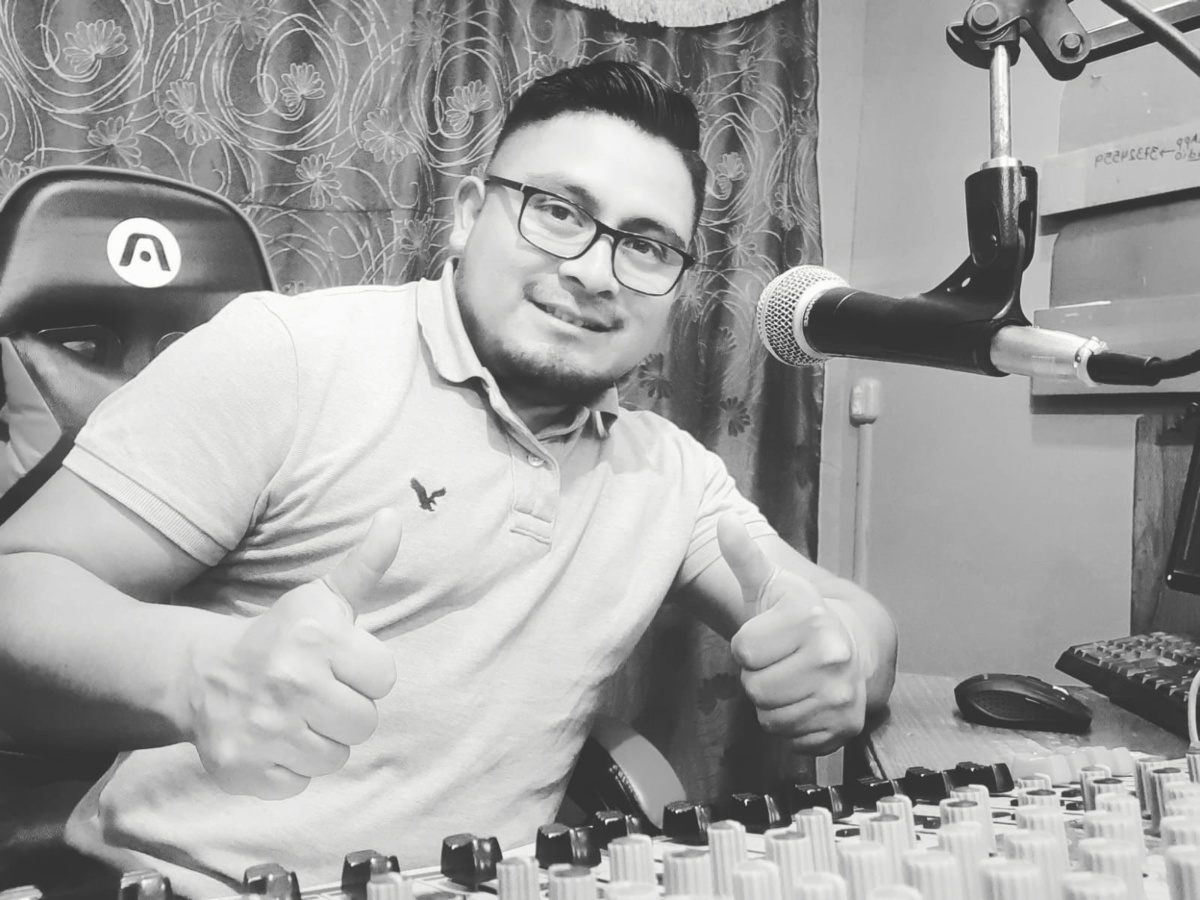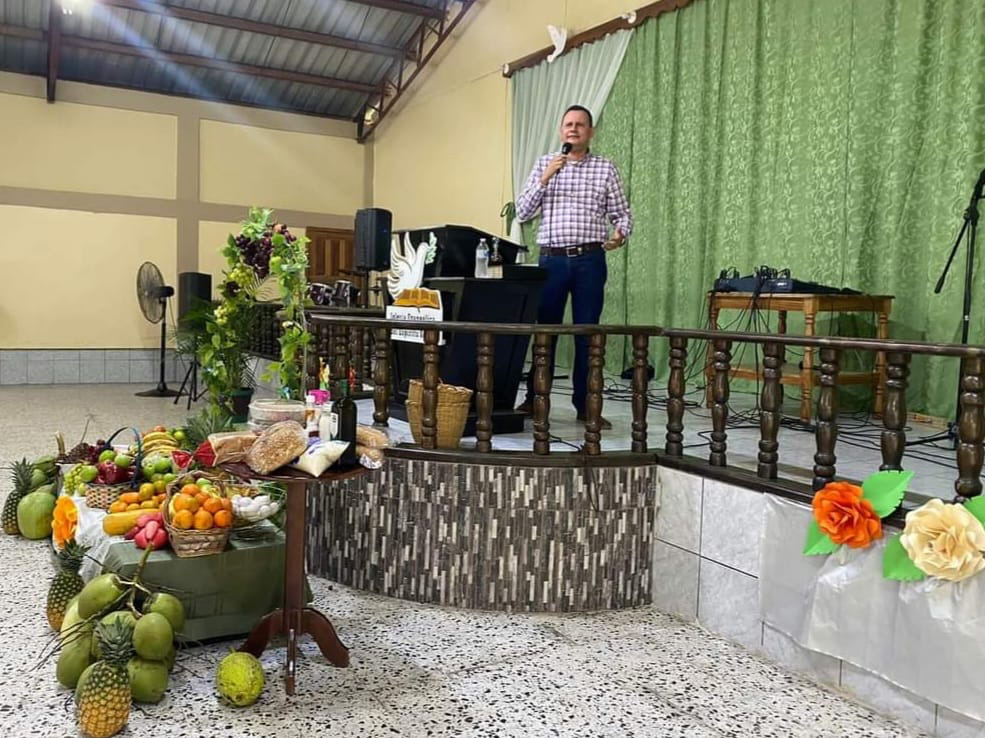
EDUARDO CAMPOS LIMA reports on the changing religious landscape in Central America…
Sao Paulo, Brazil
A survey released at the end of 2022 showed that at least three Central American countries have now more evangelical Christians than Roman Catholics, a major transformation in traditionally Catholic-dominated Latin America.
While evangelical leaders celebrate the outstanding results of their work over the past few decades, many among them have been questioning the high number of conversions their churches have promoted and are searching for new ways to lead their flocks to a closer connection with God.

Pastor Cesar Ayala, who heads the Evangelical Alliance in Guatemala. PICTURE: Courtesy of Cesar Ayala.
According to the study, which was conducted by CID Gallup – a Costa Rican-based institute with branches all over the region – the proportion of evangelicals is now larger in Honduras, Guatemala, and El Salvador than the share of Catholics (respectively with 44, 43, and 40 per cent of evangelicals against 36, 41, and 38 per cent of Catholics).
In Nicaragua, the proportion of evangelicals (38 per cent) and Catholics (41 per cent) is almost the same. In Panama and Costa Rica, the difference between Catholics and evangelicals is still larger than 20 points, but there is an equal trend of Catholic decline and evangelical growth.
“In countries where traditional societies have been dismembered by the migration from the rural world to the outskirts of large cities, broad social segments submitted to poverty and marginalisation find support, protection, and relations in Pentecostal communities.”
– Jean-Pierre Bastian, an expert in the changing religious landscape in Latin America.
In other parts of Latin America the situation is similar, notably in Brazil where experts have predicted that evangelicals will outnumber Catholics by 2032.
Such a projected change is not surprising. Over the past few decades, the number of Latin American evangelicals has continually grown, particularly in poor neighbourhoods, with the creation of thousands of new churches. Some of them have strongly invested in communication technologies, buying radio and TV stations and establishing nation-wide media complexes.
Social commentators also suggest that structural problems in Central American nations are fundamental factors in the transformation of the religious scenario.
“In countries where traditional societies have been dismembered by the migration from the rural world to the outskirts of large cities, broad social segments submitted to poverty and marginalisation find support, protection, and relations in Pentecostal communities,” explained Jean-Pierre Bastian, a professor of sociology of religion at the Strasbourg University and an expert in the changing religious landscape in Latin America.
That movement was accompanied by a lessoning in rigidity of the rules surrounding the formation of ministers, enabling leaders to be prepared to guide their communities within a few months.
“At the same time, the Catholic clergy has been diminishing and growing old,” Bastian says. “It is mostly white or mixed race, while the Pentecostal leaders are Indigenous, Black or mixed race.”

The Metropolitan Cathedral of Santiago of Guatemala in Guatemala City; the Central American nation has been bastion of the Catholic Church but a new study shows evangelicals now outnumber Catholics in the nation. PICTURE: Gianfranco Vivi/iStockphoto
Spanish-born Father José María Tojeira, a Jesuit priest who lives since 1969 in Central America – initially in Honduras and, since 1985, in El Salvador – says the Catholic Church has historically had a large popular base supported by a small number of priests who were “usually ill-educated and too dependent on foreign missionaries”.
“The evangelical Christians offered from the beginning a more unstructured system, closer from a community perspective, and with more practical solutions for leadership,” he tells Sight.
But the enormous growth of the evangelical denominations and churches is not only the fruit of failed Catholic strategies and greater evangelical action. Social commentators suggest evangelicalism – especially its more individualistic segments – seems to be more connected with the contemporary zeitgeist.
An example is so-called “prosperity theology” which became hegemonic among several evangelical segments in the region and which connects God’s grace with financial success.
“Situations of poverty, civil war, and drug trafficking led many people to look for individual solutions that would allow them to conveniently practice their faith,” Tojeira explains. “The so-called consumer society also influenced the creation of a religious environment for individual consumption.”
The growth of evangelicalism in Central America also seems intrinsically linked with socio-economic issues in the region. Since 2014, at least two million people are estimated to have left El Salvador, Honduras, and Guatemala, fleeing gang violence, unemployment, and social turmoil.
“If evangelical Christianity is so large here, why does not Christianity permeate society?” rhetorically asked Pastor Cesar Ayala, who heads the Evangelical Alliance in Guatemala.
Ayala believes the high percentages of evangelicals in Central America do not necessarily reflect reality in more than a superficial way. He considers, for instance, “that many times there is a lack of good Christian testimonies”.
“Our greatest difficulties are inside ourselves. Our challenge is not to conquer more churchgoers, but to work with people in order to allow them to be true Christians – and not only when they are in a temple,” says Ayala.
Forty-four-year-old teacher Carla Ramos, who lives in Guatemala City, agrees that the “negative testimony” evidenced by some evangelicals is one of the most serious problems concerning the expansion of faith.
A former Roman Catholic, Ramos converted 24 years ago when she met her evangelical husband. She was invited to go to an evangelical church by him and his parents and soon she “understood that God had a plan” for her life.
The profound process of conversion that she went through appears to be different from the attitude expressed by many evangelicals in their daily lives, she detailed.
“There are many evangelicals who are Christians in name only. They do not live Christ’s truth and offer bad examples for non-converted people,” Ramos says.

Pastor Nehemías López, who directs radio Eben Ezer, a Christian station in Aguacatán, Guatemala. PICTURE: Courtesy of Pastor Nehemías López.
One of the pillars of the evangelical expansion in Latin America, Gospel music, can play controversial role when it comes to a real commitment to spirituality.
“Gospel singers are fundamental for evangelisation, but many times they include worldly contents in their music,” says Pastor Nehemías López, who directs radio Eben Ezer, a Christian station in Aguacatán, Guatemala. “That may confuse the people.”
Founded in 2000, Radio Eben Ezer gathers 15 different evangelical churches and offers Christian shows 24 hours a day. A council of 30 pastors evaluate each church’s productions. Former members have had to leave the station in the past after airing content that was not in line with the station’s Biblical doctrine, López recalls.
We rely on our readers to fund Sight's work - become a financial supporter today!
For more information, head to our Subscriber's page.
Over the past four years, Eben Ezer has also been broadcasting its shows online.
“Our brothers who left the country and now live in the United States or elsewhere can listen to us and connect to us this way,” says López. “That gives them a sense of belonging.”
The strategy of investing in radio stations and Gospel singers has been recently emulated by Catholics, López notes.
“We are the majority in the region, but there are many Catholics too. Their radios adapted the style of our songs. At times, evangelicals are searching for a station and end up listening to a Catholic one.”
Pastor Luis Ángel Díaz, the board secretary of God’s Church and head of the Evangelical Alliance in El Salvador, said that numerous radio and TV stations were founded in his nation over the past few decades – and some of them reach the entire Salvadoran population.
That is part of a continuous effort to increase the evangelical’s social reach – along with schools, universities, social aid entities, and the physical presence of ministers preaching in public venues, he tells Sight. Lately, politics has also been playing a significant role.
“Some segments still resist to the churches’ involvement in politics. The predominantly theological formation in El Salvador is conservative, so people are not incentivised to engage in political and social issues. But that is changing.”

Pastor Manuel Puerto, who heads the Evangelical Church of the Holy Spirit in the city of La Ceiba. PICTURE: Courtesy of Pastor Manuel Puerto.
In Honduras, the 40-year-old Evangelical Church of the Holy Spirit has always told its members not to become politicians as a way of preventing confusion between religion and politics.
“Most evangelical churches avoid it. It is more something that the mega churches do,” says Pastor Manuel Puerto, who heads the church’s branch in the city of La Ceiba.
He said that if a member decides to become a candidate to a government office, “the church will never allow him or her to use the pulpit to discuss party politics,” he said.
In the opinion of Jean-Pierre Bastian, the evangelical focus on rebuilding families that many times had been dismantled by “violence against women and drugs” make them more inclined to right-wing politics.
But they tend to be pragmatic, he added, and some of their leaders look for deals in which they exchange their churchgoers’ votes for cuts in the taxes they have to pay for their radio or TV stations.
Puerto, for his part, says he does not get involved in politics but is more concerned with his flock’s family unity. One of his frequent efforts is to insist with all members of his community not to immigrate.
“We teach the people that family is the most important thing in the world and that they should not move elsewhere and leave their children behind,” Puerto tells Sight. “It is preferable to lead a simple life together than dismembering the family in order to make more money abroad, he argues.
Puerto is also worried about the lack of missionaries in rural regions of Honduras. He said that great international churches coming from the United States or Brazil many times prefer to work in large cities.
“If they are helped by their brothers in their original countries, I think they should strengthen the churches’ presence in the countryside,” he notes..
Divisions between the evangelical churches have been restricting their expansion and increasing the ranks of those who declare to be “non-religious” but believe in God, according to Father Tojeira.
On the other hand, the Catholic Church has developed more participative communities and increased the lay people’s presence. All that is collaborating to slow down the growth rhythm of the evangelical churches, he argues.
“The European type of secularisation has also been increasing in Central America over the past years,” he concludes.





